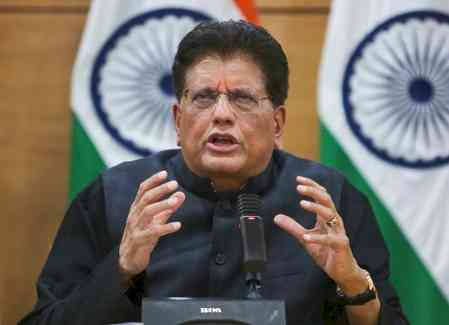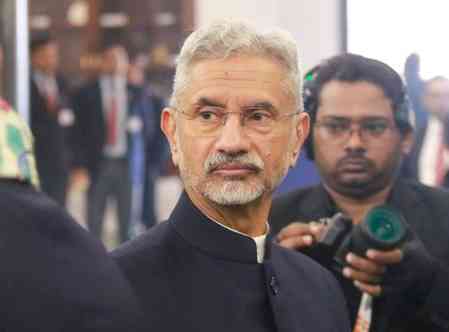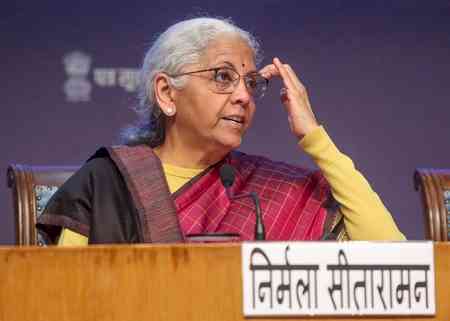Industry reactions to Union Budget 2022-23 (Part-4)

Gunish Jain, CEO, BlueKaktus
"The Union Budget 2022-23 has significantly boosted the MSME sectors in terms of skilling and entrepreneurship. Moreover, the current budget inserts an emphasis on the small and medium-sized business sector, which contributes over 5% to total manufacturing output, 40% to exports, and nearly 30% to GDP. As a result of the government's interlinking of the MSME's Udyam, e-Shram, NCS, and Aseem portals, the growth factors have already widened. In addition, the government's initiative to boost the sector by allocating Rs 6,000 crore to the Raising and Accelerating MSME Performance (RAMP) program for MSMEs will help in improving competitiveness and productivity. Also, the increase in capital expenditure will help the industry recover quickly from the pandemic and improve private investment and create infrastructure. This is a step in the right direction. The increase in outlay for MSMEs will bring much-needed relief to SMEs and encourage them to grow.”
Dr Mona Lisa Bal, Chairperson, KiiT International School
“The Union Budget 2022 announced today was a hit and miss for the education sector. While it has finally addressed and recognized the learning loss the pandemic has created, the need to develop the digital infrastructure of the country was not adequately focused in the budget. The economically disadvantaged students especially in rural areas have lost essential years of education and introduction of supplementary teachers was highly necessary. Supplementary education can help bridge the gap to a large extent. Increase of 'One Class One TV Channel' from 12 to 200 TV Channels to provide supplementary education in regional languages for class 1-12 is a welcome move but it will not be enough. It is important that we adapt our education system, pedagogies, and assessments according to the changing times. Upskilling is the need of the hour. Thus, the launch of Digital DESH e-portal for skilling, upskilling and reskilling will be key to adapting to the shifting dynamics of our present. Setting up of virtual labs and skilling e-labs will be valuable in developing critical thinking amongst students. Access to high quality e-content can help enhance the quality of education received by students. Making this accessible in regional languages additionally is a positive step towards a wholesome education. Development of a digital university to provide access to students for world-class quality education with ISTE Standards will be beneficial in the long run by making education available for a wider audience through the power of the internet. However, the much-needed increase in budget allotment for the education sector was missed. Further constructive measures towards digitization and resuming physical classes are needed.”
Nikhil Sahni, Country Corporate Officer, India & Division President, South Asia, Mastercard
“Mastercard welcomes the continued focus on digital and financial inclusion in the Finance Minister’s Budget 2022 speech. Setting up Digital Banking Units (DBUs) and bringing post offices into the core banking system, will help expand the reach of financial services to the last mile. The extension of Emergency Credit Line Guarantee Scheme (ECLGS) will boost MSME recovery and growth by providing them with liquidity and helping them meet working capital requirements. Start-ups will benefit from tax benefits that will spur further innovation and boost employment in the country.”
Kavitha Subramanian, Co-Founder, Upstox
"The Finance Minister has presented a digital-first Budget that focuses on quick, holistic, and inclusive economic growth. The focus on start-ups and fintech in this year's Budget is a fantastic step that will help these sectors grow further.
The introduction of 5G and the spread of optical fiber to villages would provide a boost to the Fintech industry. It encourages digital investment platforms like ours to expand their services, resulting in an increase in retail activity in Tier 2-Tier 3 cities and towns. The Central Bank Digital Money (CBDC) will help to enhance the digital economy by making currency management more efficient and less expensive. The capping of surcharge at 15% on Long-Term Capital Gains (LTCG) tax for all listed and unlisted corporations responds to a long-standing demand for new-age businesses."
Venkatram Mamillapalle, Country CEO & Managing Director – Renault India
“We welcome the Union Budget 2022, which spells seamless growth for the Auto & Auto Ancillary industry in India. The government’s focus on ‘Aatmanirbharta’ will continue to provide impetus to build domestic capacities and push the agenda of ‘Vocal for Local’. The government’s focus on Battery Swapping policy to be brought with inter-operability standards and push for clean tech and electric vehicles will create the right ambient environment for EV introduction and overall harmonisation of the electric mobility aspiration of the nation. This move will prove to a giant leap for the nation in advocating introduction of cleaner propulsion technologies and will improve air quality and reduce consumption of conventional fossil fuels.
The government has laid emphasis for the development of the infrastructure within the country that will further help build capacities for the resurgence of the automotive sector in India and envisages Rs 20K Crore investment outlay in infrastructure projects, under the auspices of PM’s Gati Shakti that focuses on 7 engines of growth, including building the road transport network in the country. The National Highways network will be expanded by 25,000 km in 2022-23. Better roads will have a certain positive impact on the automotive sector. Finally, the government’s decision of strengthening the rural economy through a MSP payment of Rs 2.73 lakh crore along with other benefits with an objective of aiding the farming sector, will help increase the disposable income, improving the sentiment in rural areas and further improving the demand & aspirations of rural and semi-urban markets of India for personal mobility.”
Vikas Bajaj, President, AIFI (Association of Indian Forging Industry)
“This Union budget focuses on investing more on infrastructure and renewable energy, which will indirectly support employment generation. Apart from that, the government has focused on strengthening the logistics sector, digital education, health infrastructure etc. which is a welcome move. Apart from encouraging EV by creating a battery swapping strategy to overcome EV charging infrastructure, I believe there isn't much in the budget to support the auto sector as was expected. Also, not much changed in the Direct Tax rates for Corporates as well as individuals except incentives for start-ups by extension of timeline for start of production u/s 115BAB. Some industries, such as jewellery, have benefited from reduced customs duties on precious stones and other commodities. Finally, to assist the MSME sector, the ECLGC scheme has been extended for MSE’s till 31st March 2023”.



 cityairnews
cityairnews 










